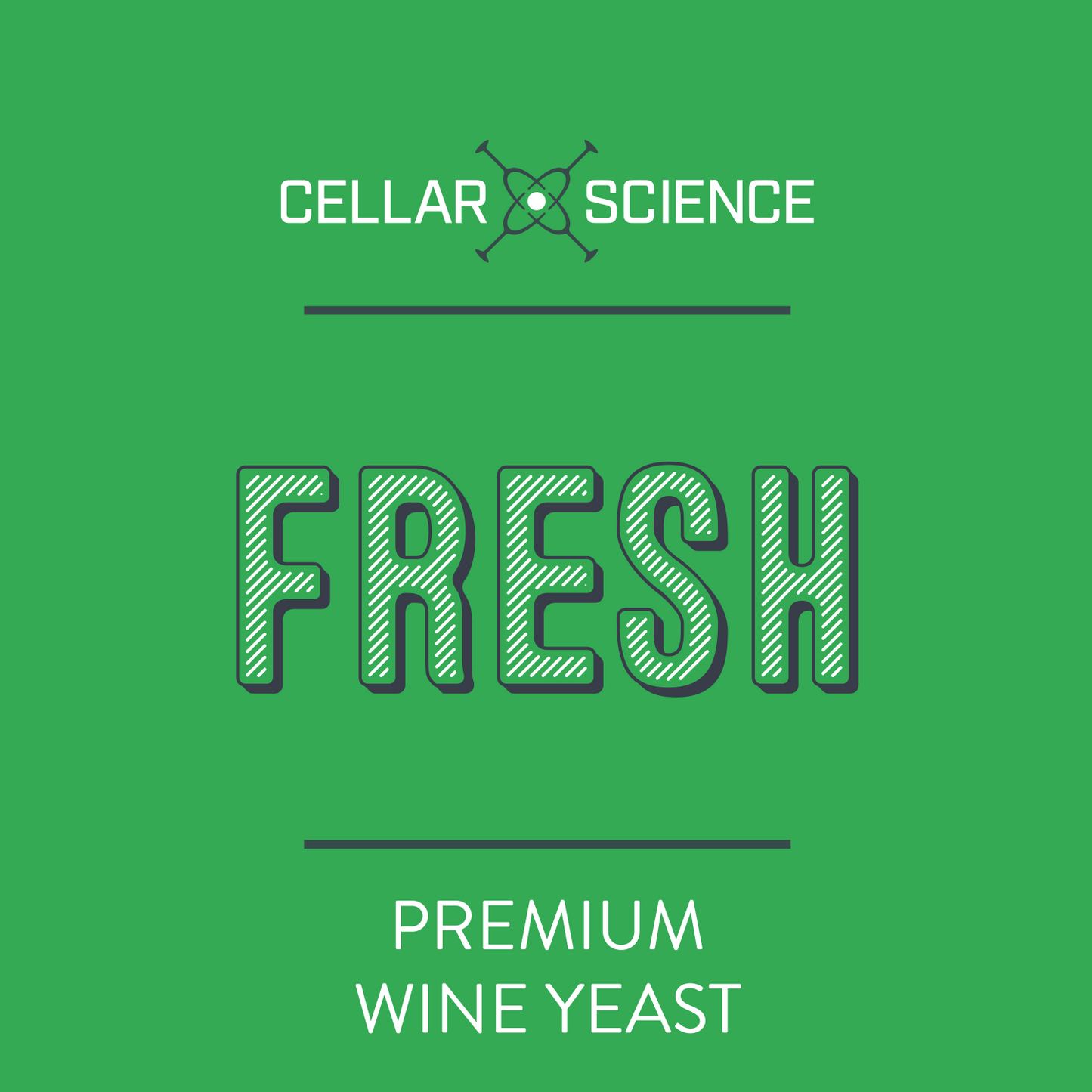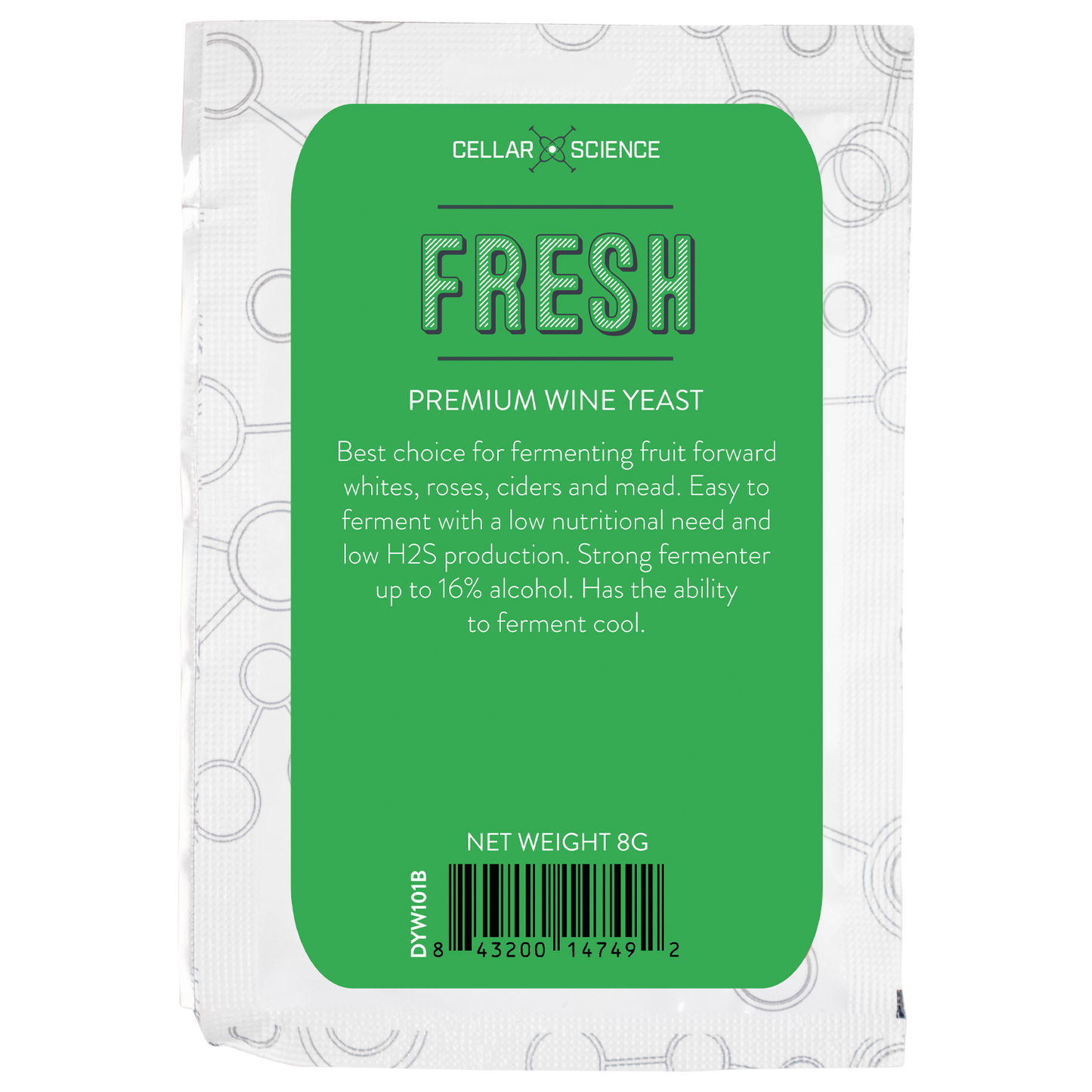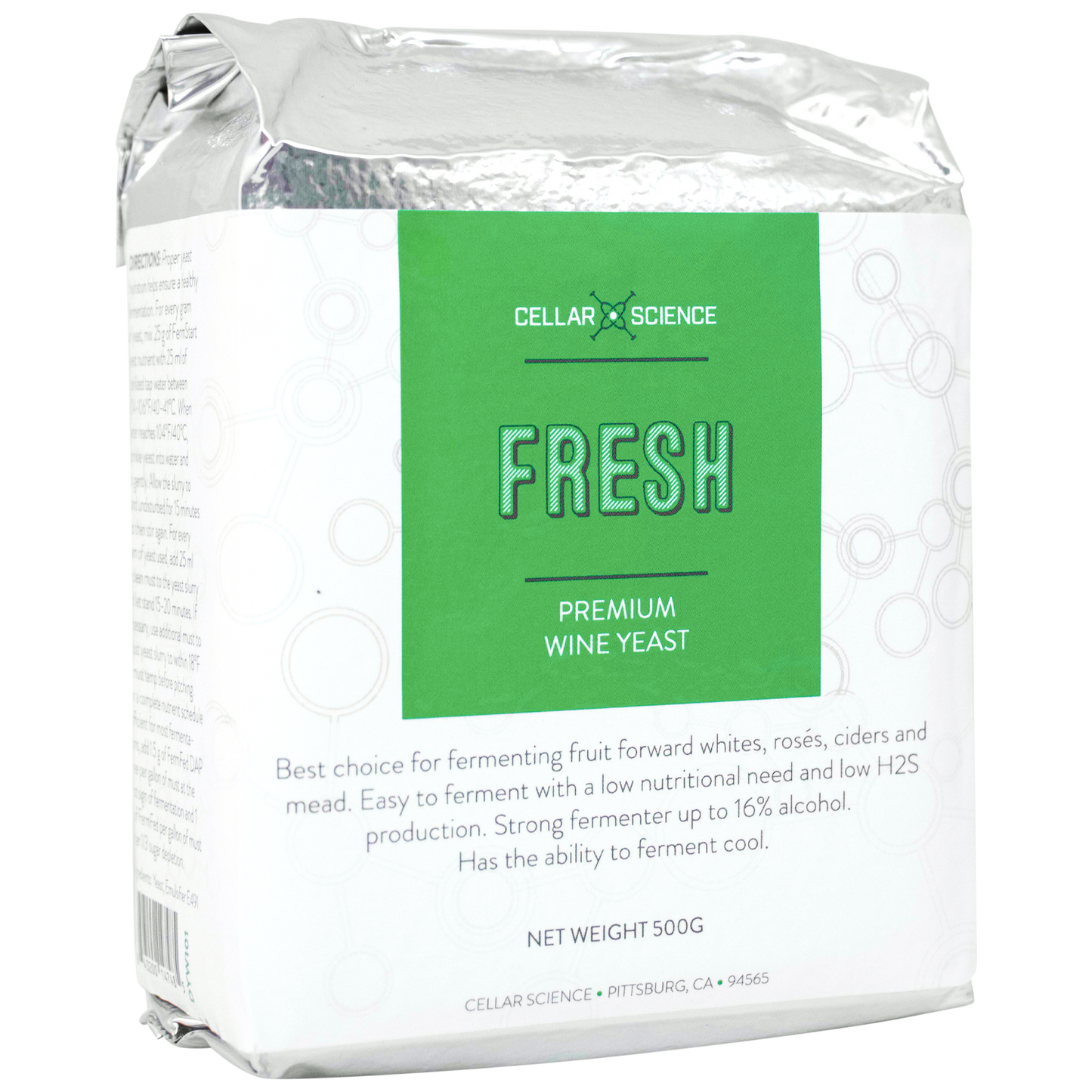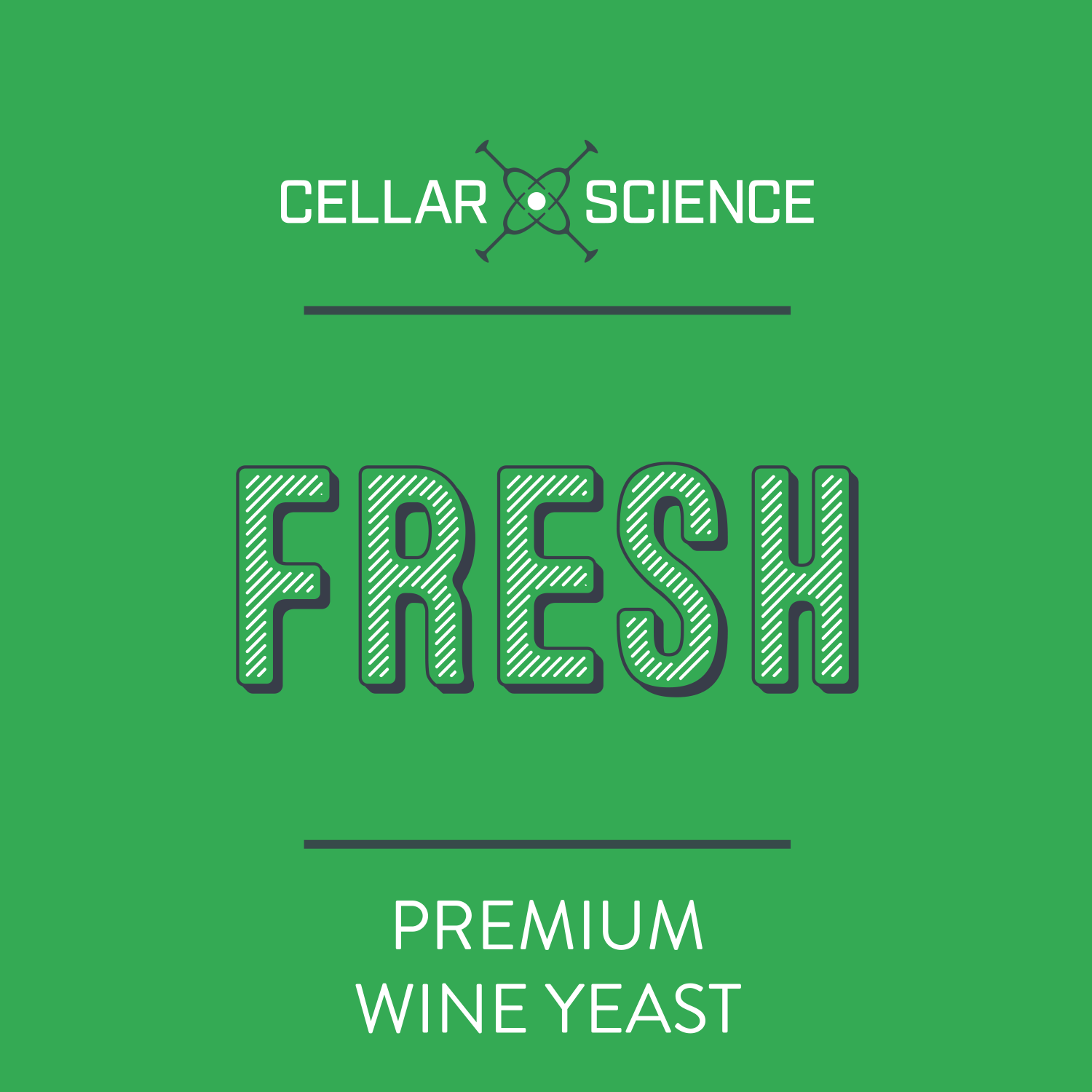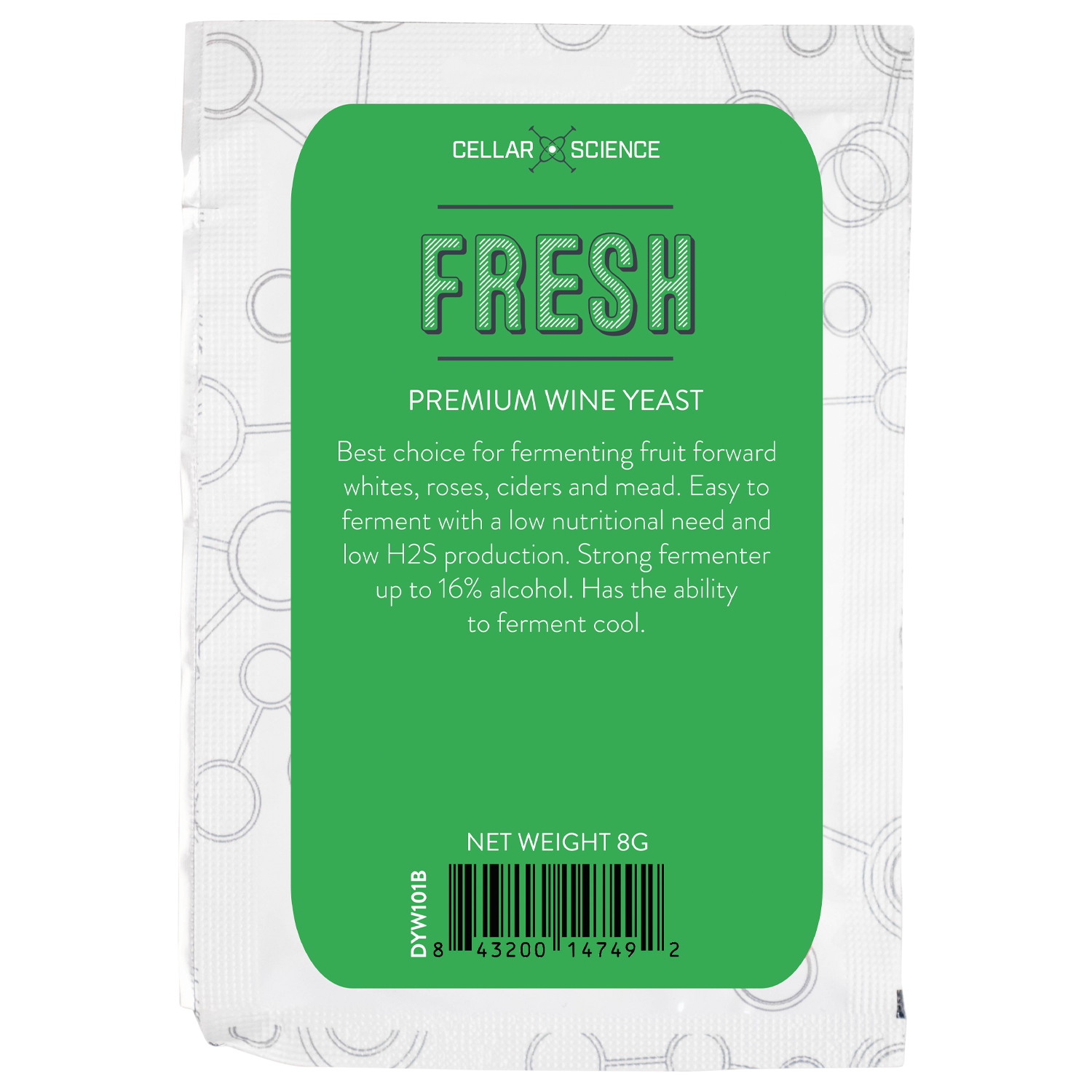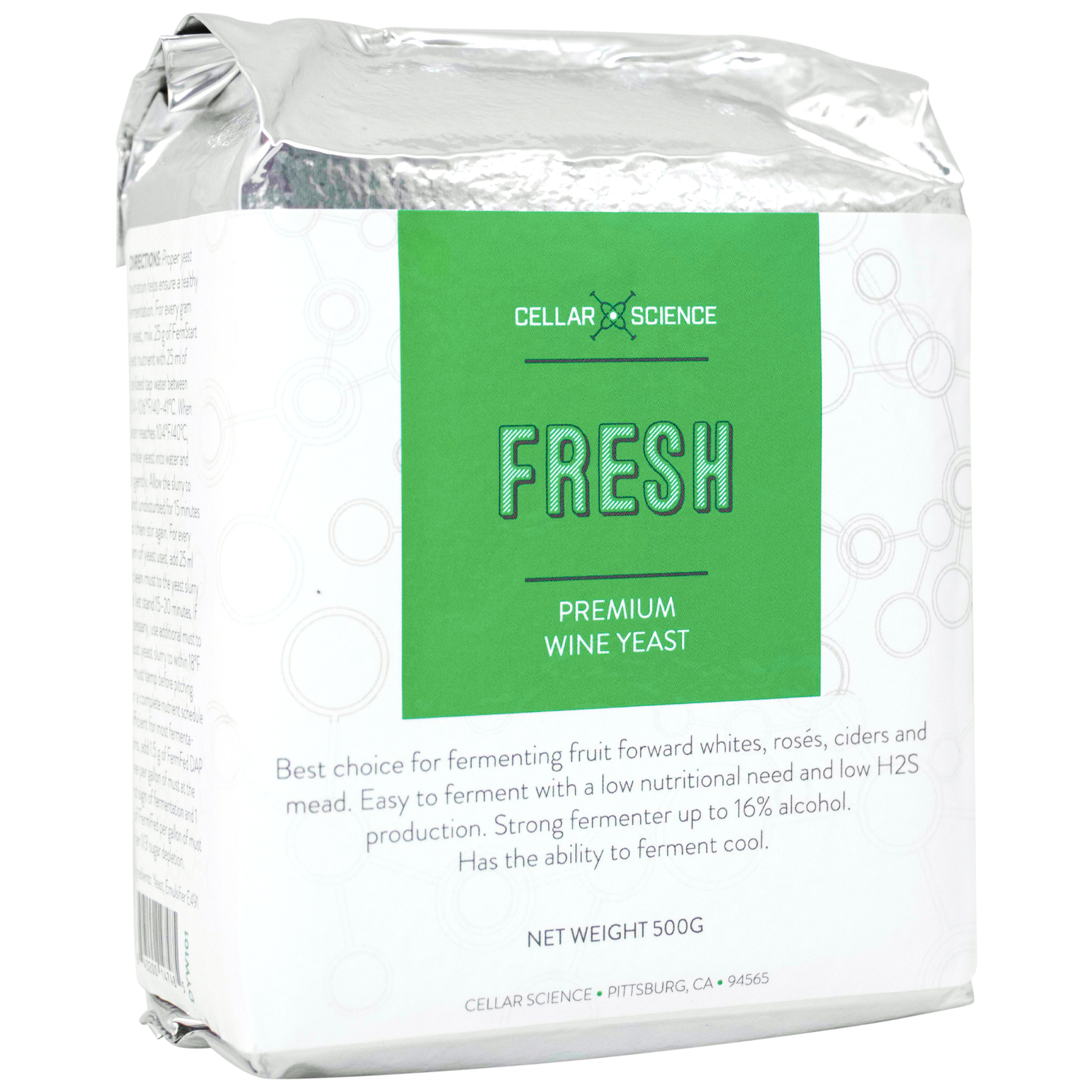Cellar Science
FRESH Dry Wine Yeast
FRESH Dry Wine Yeast
- Producer of fresh fruit aromas/flavors
- Best choice for fruit forward wines
- Best choice for ciders
- Best choice for Roses
- Ability for ferment cooler
- Strong fermenter
FRESH—well the name says it all. The perfect choice for fermenting fruit forward whites, roses, ciders, and meads. Because FRESH is a Bayanus strain it is able to ferment at lower temperatures, a nice option for producing cleaner more focused fruit flavors. Emphasizes stone fruit flavors. We almost named it Beauty and the Beast because once it starts fermenting it doesn't stop. Super easy to ferment with lower nutrient needs and a a very high alochol tolerance up to 16%. Many cider producers like this yeast for its ability to add those fresh and fruity flavors. Although easy to ferment, we still recommend our nutrient regimen of Fermstart, FermFed DAP Free, and FermFed to increase fruit and floral flavors, while avoiding H2S production that can mask fruit.
Start Time: Fast
Alcohol tolerance: 16%
Nitrogen demand: low
YAN Requirement @ 23 Brix: 225 ppm
Production of volatile acidity: Very Low
Production of SO2: Low
Cap/Foaming: Very low
Ease to Ferment with MLF: Average
Malic Consumption: High
Yeast Type: Bayanus
Optimal Fermentation Temp: 50–80°F
Optimal Fermentation Temp: 50–80°F
Proper yeast hydration helps ensure a healthy fermentation. For every gram of yeast, mix .25 g of FermStart yeast nutrient with 25 ml of sterilized tap water between 104–106°F/40–41°C. When water reaches 104°F/40°C, sprinkle yeast into water and stir gently. Allow the slurry to stand undisturbed for 15 minutes and then stir again. For every gram of yeast used add 25 ml of clean must to the yeast slurry and let stand 15–20 minutes. If necessary, use additional must to adjust yeast slurry to within 18°F of must temp before pitching. For a complete nutrient schedule sufficient for most fermentations, add 1.5 g of FermFed DAP Free per gallon of must at the first sign of fermentation and 1 g of FermFed per gallon of must after 1/3 sugar depletion.
